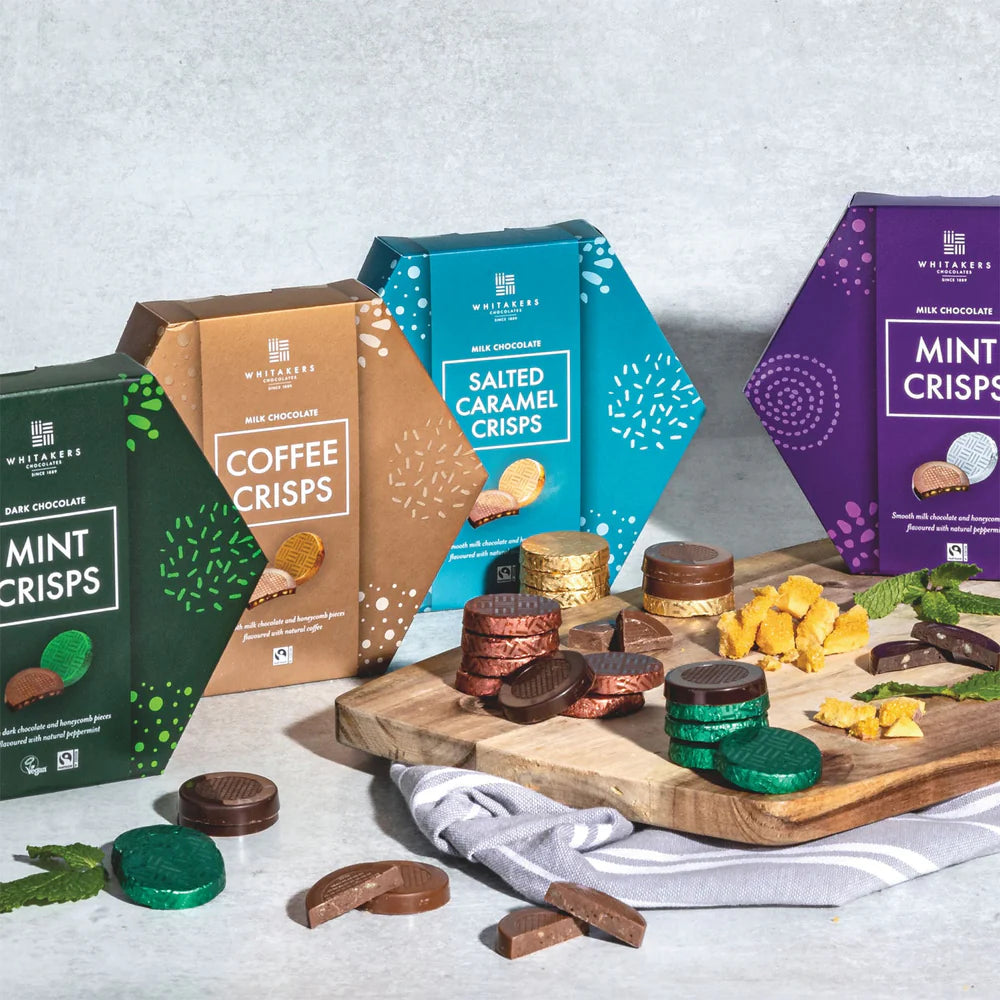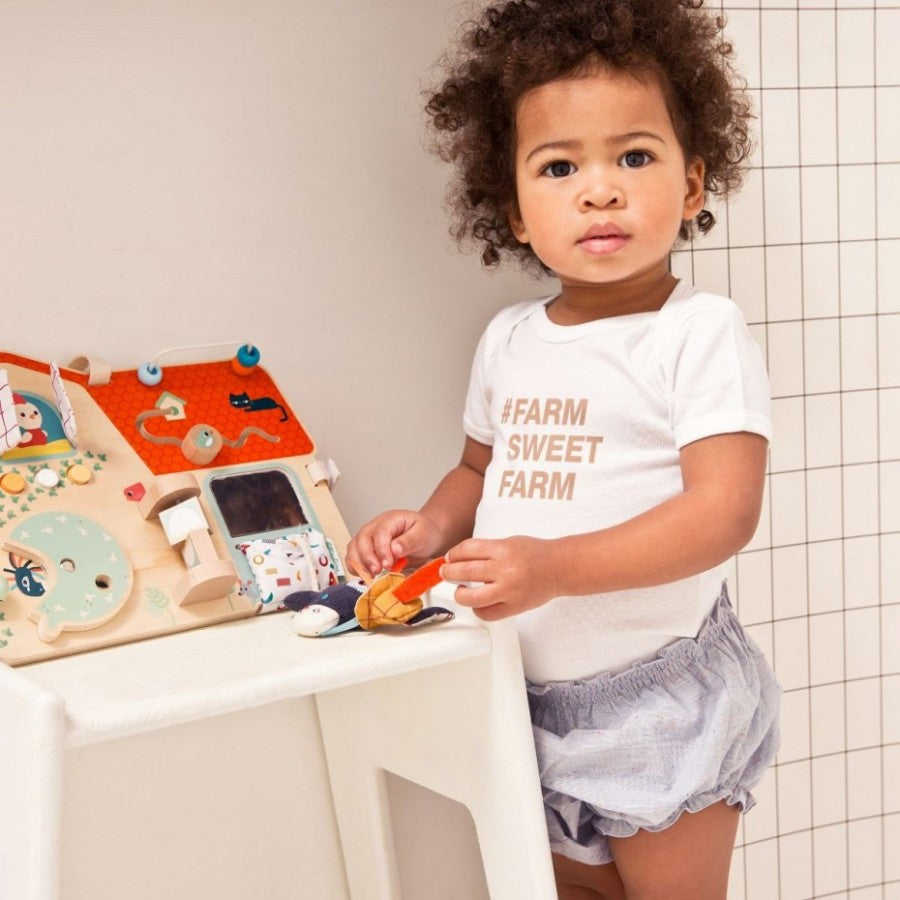 Sustainability
Sustainability
WE CARE ABOUT THE WORLD WE LIVE IN
The world means the world to us, and we want to make it a more thoughtful, sustainable, and caring place.
In a rapidly changing world, the global community must act now to prevent climate change, conserve natural resources, and help everyone live well within the limits of the planet.
As a major greeting cards retailer, we’re committed to doing everything we can to support the United Nations-led push for a fairer, sustainable future for all. We know that our customers want to know more about the story behind the cards that are supplied to us. And we’re passionate about making a positive impact – acting that’s good for the environment and smart for our business while caring for our people and the communities where we work and live. This means our industry is rethinking the way our manufacturers make and produce cards, all the way from the forests where our wood pulp is grown to the way our customers recycle their used greeting cards.
Through the sustainability strategy, Our main supplier stands to make a positive impact on 11 of the UN’s 17 2030 Sustainable Development Goals, and is guided on this mission of the core values of creativity, collaboration, innovation, people, and success.
The 11 of the UN’s 2030 Sustainable Development Goals are:
- GOOD HEALTH & WELL-BEING,
- QUALITY EDUCATION,
- GENDER EQUALITY,
- AFFORDABLE AND CLEAN ENERGY,
- DECENT WORK AND ECONOMIC GROWTH,
- REDUCED INEQUALITIES,
- SUSTAINABLE CITIES AND COMMUNITIES,
- RESPONSIBLE CONSUMPTION AND PRODUCTION,
- CLIMATE ACTION,
- LIFE BELOW WATER,
- AND LIFE ON LAND
Responsible Consumption and Production
Our main publisher will continue to use 100% FSC® certified stock and only use ethical suppliers who comply with FSC® regulations. Reducing, reusing, and recycling are ever-present in our consumption and production operating models.
Climate Action
Our main publisher will continue to reduce, minimise, and offset carbon emissions from their UK and global operations. Working closely with their supply chain partners to ensure they are adopting the same approach.
Life Below Water
By constantly improving and reviewing its portfolio of products and by implementing new, innovative, and creative techniques, they aim to reduce the impact of plastics associated with its products and packaging.
Life On Land
They aim to extend their sustainable sourcing policies to go beyond the paper and board which are used in their products today whilst promoting the use of sustainably managed forests.
Plastics and Packaging
Packaging plays a vital role in protecting products in transit and when it reaches stores. But certain types of packaging, especially single-use plastic, can create waste, polluting our oceans and environment. As part of our sustainability commitment and with growing demand from our customers and consumers to address plastic waste, we’re doing everything we can to optimise our packaging for recyclability and use more sustainable and recycled mater
Going Naked:
Our industry has typically used plastic packaging, an outer sleeve known as a cello bag, to protect cards and keep them in a good, saleable condition. These bags are not currently recyclable, and too often become waste. And with more than 50% of consumers stated plastic-free packaging was important to them in 2019, investigating alternative types of packaging or ways to keep cards and envelopes together. Where possible, will be working to remove it completely.
To tackle the cello bag challenge, working closely with suppliers and key customers to find alternatives to single-use plastic wrapping, as part of broader efforts to reduce, reuse and recycle packaging. Lots of options have been explored and listened to customers’ and consumers’ needs. Above all, we wanted to ensure that our cards would retain their same high quality while offering our customers a more environmentally-conscious choice. Together, we decided to try a new option – unwrapping our cards so they could be displayed in their naked form.
Since the introduction of the ‘Going Naked’ initiative in 2019, 250 tonnes of cello bags have been removed from popular single cards, with consumers embracing the opportunity to buy unwrapped cards for friends and loved ones.
When Blue Planet highlighted the damage plastic is doing to our oceans, it was a call to action for our industry. The issue of plastic waste is definitely getting the attention and action it now deserves in our industry and beyond. By working with our suppliers to go naked on key product lines, we aim to contribute to the global push to stem the tide of plastic waste.
Optimising Business Practicies
Continuously seeking to improve the impact on the world throughout the life of our cards, from forest to recycling:
- Preventing deforestation – Working closely with suppliers to help ensure that every single card and paper product can be physically traced back to sustainably managed forests.
- Protecting endangered habitats – Publishers working with the World Land Trust™ to offset CO, resulting from the manufacture of paper and board to produce single cards, by only using Carbon Balanced paper. 2
- Low carbon transport – Partnering with world-class sea freight providers, enabling the achievement of zero net carbon emissions.
- Conserving resources – Strive to use materials and resources efficiently, as the move towards sending zero operational waste to landfill.
- Sustainable operations – Increasing the use of renewable energy and reducing energy consumption, sourcing electricity from solar, hydro, and wind power, and introducing LED lighting in distribution centres, for example. In 2019, the carbon footprint was reduced by 400 tonnes simply by improving energy efficiency.
- Optimising packaging – The aim is to reduce and where possible, avoid packaging through new and innovative design solutions (including the Go Naked range of cellophane-free cards), prioritising sustainable and recycled content, with an aim for all packaging to be recyclable.
Helping To Protect Endangered Habitats: Carbon-Balanced Paper
The world’s forests provide us with food, water, healthy soil, clean air, and an important way to capture carbon from the atmosphere. They’re also home to 80% of biodiversity. To help protect our forests and prevent deforestation, sourcing is done through Forest Stewardship Council® (FSC®) – certified paper and board and works with suppliers committed to the same high standards. The FSC® works to support suppliers in adopting practices that benefit forests, workers, and communities.
All lines are produced using only sustainably sourced (FSC®) material with new designs featuring the FSC® logo on the back of the card, providing peace of mind that your card has been created sustainably. This means that any of the cards we stock can be traced all the way back from the shop shelf to the forest that provided the wood pulp to make the card.
Importantly, our main publisher trains people to support this effort and make sure that all laws have complied and regulations relating to forest conservation.
Carbon emissions produced from
The World Land Trust™ (WLT), a global conservation charity, works to save threatened habitats by creating protected nature reserves around the world – safeguarding some of the world’s most vulnerable and biologically significant habitats and wildlife.
Projected paper usage during 2021/22 will help to save 635 acres (2,569,210m² ) of an endangered forest, offsetting 9688 tonnes of CO2.
Free Delivery* Over £49.99
Spend over £49.99 and let us treat you to free delivery! We’ll bring your Monisha London order straight to your doorstep
Secure Payments
Shopify adds security and trust to the checkout process, a leading online payment platform renowned for its robust security.
Excellent Customer Service
Excellent customer service, valuing customers, taking a step further to exceed- rather than meet expectations with a pleasant attitude and valuing customers’ time.



